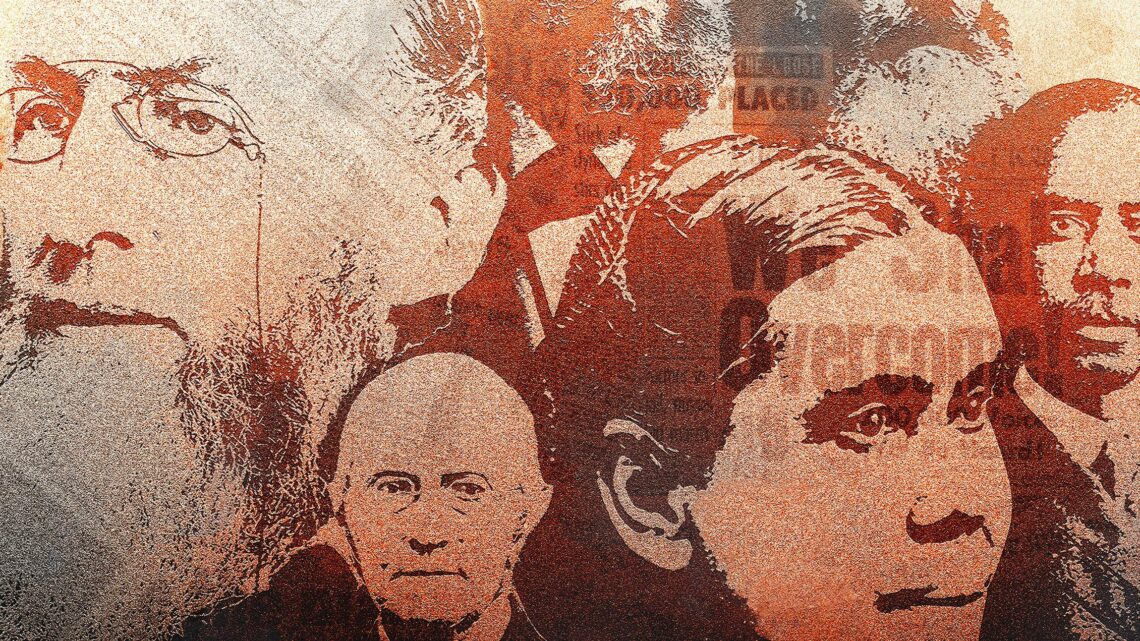As the territory where the Adventist church was organized, the Lake Union has a unique and distinctive legacy as the resident voice of our pioneers. Our pioneers represent courageous voices who boldly proclaimed and personified the gospel.
When we consider the contributions of our pioneers, we realize there’s a difference between the past and present application of Public Affairs and Religious Liberty ministry.
Consider the actions and strong statements from our pioneers on this issue of slavery. Guided by the Holy Spirit, they spoke truth to power through words and deeds (1 John 3:16-18) in upholding the gospel of Jesus Christ and the three angels’ messages.
Check out these insightful facts about and quotes from our pioneers:
- John Byington, first General Conference president, was an abolitionist.
- Uriah Smith condemned “white-washed villainy” emanating from the pulpits (Adventist Review and Sabbath Herald, June 17, 1862).
- In Present Truth, James White labeled those who did not endorse freeing slaves as laggards.
- Ellen White once wrote, “Are we not under even greater obligation to labor for the colored [Black] community than for those who have been highly favored? Who is it that held these people in servitude? Who kept them in ignorance, and pursued a course to debase and brutalize them?… Is there not much due to them from the white people?… Sin rests upon us as a church because we have not made greater effort…Every effort should be made to wipe out the terrible wrong which has been done to them.” (MS 6, 1891)
- Joseph Bates described America as, “This land of liberty, this heaven-daring, soul-destroying, slave-holding, neighbor-murdering country.” (SDA Encyclopedia, p. 170)
It’s clear our pioneers, like Issachar in 1 Chronicles 12:32, understood the times and knew what the church should do. Nevertheless, over the decades, the church has shifted in speaking truth to power in words and deeds and was largely silent during segregation, Nazi Germany, women’s suffrage, apartheid in South Africa, the Civil Rights Movement, and the aftermath of the death of George Floyd. It seemed the church followed society instead of being the light for society to follow.
Although the church has shifted, you can’t ignore the countless numbers of individuals known and unknown who continue to raise their voices in the spirit of our pioneers. For example, during a Lake Region camp meeting, Don Livesay, former Lake Union Conference president, offered a formal apology for past racial discrimination by the Seventh-day Adventist Church. Andrea Luxton, former Andrews University president, also issued an apology listing racial atrocities carried out on the university’s campus decades ago. Former Pioneer Memorial Church Pastor Dwight Nelson joined a student-led march in support of the message that Black lives matter, too. In Wisconsin, Pastor Stephen Hall proclaimed that Black lives matter, too, using the Reedsburg church signage. Nicholas Miller, former Lake Union PARL director, routinely acknowledged the existence of white privilege. Kevin Burton, Center for Adventist Research director, reminded us that our pioneers were vocal against slavery and racial discrimination. With all this, let’s remember that PARL is not just about race. It’s about inequality in housing, healthcare, misogyny, education, food insecurity, lack of access to clean water, poverty, and so much more.
It’s important we don’t change the narrative or engage in revisionist history or disparage Public Affairs and Religious Liberty ministry. It’s only fitting the namesake of Andrews University, J.N. Andrews, speaks to this issue of not equating PARL to politics. “The sin [of slavery] is snugly stowed away in a certain package which is labeled ‘politics.’ They deny the right of their fellow men to condemn any of the favorite sins which they placed in this bundle; and they evidently expect that any parcel bearing this label will pass the …judgment of the great day—without being examined. Should the All-seeing Judge, however, inquire into their connection with this great iniquity, they suppose the following answer will be entirely satisfactory to Him. ‘I am not all the censurable for anything said or done by me on behalf of slavery; for O Lord, Thou knowest, it was a part of my politics!’ (“Slavery,” Review and Herald, Oct. 25, 1864, p. 172, J. N. Andrews)
Nevertheless, there are some who recommend to minorities who visit a state church that they would be more comfortable in a regional church. In addition, some also believe we have regional conferences because of the drums and appear to believe that heaven will be segregated. We also have some viewing all white people as the same, refusing to forgive, and not willing to participate in sincere attempts at reconciliation.
Revered more in death than in life, Rev. Martin Luther King Jr. penned this sentiment in his “Letter from a Birmingham Jail”: “Shallow understanding from people of goodwill is more frustrating than absolute misunderstanding from people of ill will. Lukewarm acceptance is much more bewildering than outright rejection.”
In conclusion, it’s time for the Lake Union to embrace and represent our early pioneers in the application of the Public Affairs and Religious Liberty ministry, as this will determine whether we are alive or dead to the legacy of our pioneers.
This article was originally published in the Lake Union Herald. Used with permission.
Image courtesy of the Lake Union Herald.
https://www.lakeunionherald.org/archive/articles/legacy-of-our-pioneers-is-it-dead-or-alive
Edward Woods III is the Public Affairs and Religious Liberty director for the Lake Region, as well as the Conference and the Conscience & Justice Council chairperson.










